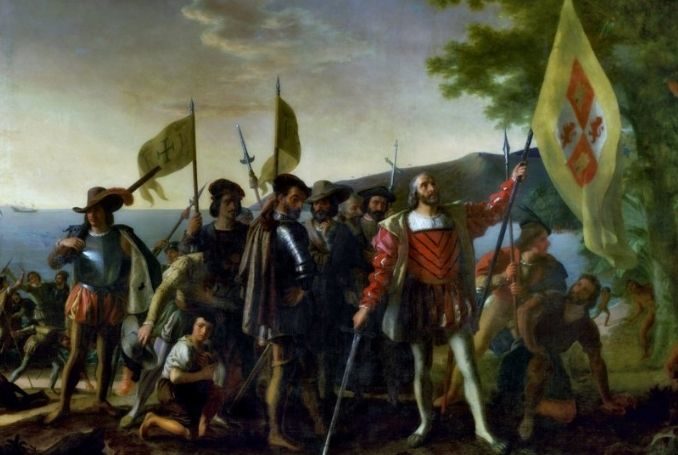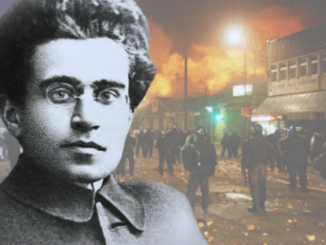
(Wealth and Power: Global Transformation and Destruction 1492 to 2020 Part 1: Understanding Colonialism and the impoverishment of the world and the enrichment of Western Europe)
This is a history blog… Unlike any history you have been taught. The blog will set out to explain why the world we all live in, is as it is today. Sign in here and you receive a short weekly history on colonialism, racism, and very much more.
Preface
Between the years 1492 and 1815, a period of just over three hundred years, Western Europe managed to enrich itself at the expense of the Americas, the Indian subcontinent and large parts of Asia, excluding China – although China came later! The mechanisms to achieve this extraordinary situation included colonization which involved invasion, rule by outside powers, and the settlement of lands by farm owners from European countries. Colonialism in this period involved chattel slavery, famine, eradication of indigenous peoples, Western monopoly companies and the overthrow of the Catholic Church in large parts of Europe with the replacement of the Protestant religion. The process which has been called the Reformation in historical parlance.
This complex mix of change and violence is unraveled in a series of blogs called Wealth and Power: Global Transformation and Destruction 1492 to 2020 which will hopefully enlighten and inform.
At the beginning of the period 1492, Europe was a relatively insignificant part of the human geography of the world; however, if we fast forward 300 years later, Europe was the richest part of the world and ready to struggle internally for global dominance
500 Years of History
The blogs published in Wealth and Power take in 500 years of history and provide a timeline for change that happened the world over. The blogs are the story how the world was turned upside down, by which I mean how Europe and then the USA became dominant world powers and the previous richest parts of the world, such as China and India, became the poorest. The story begins with Drake and his sailing westwards from Spain in 1492. Spain and Portugal then invade the Americas and steal their wealth; followed 100 years later by France, the Dutch and the British. European settlement followed and their need for laborers, which ends in the widespread use of slavery.
I often move sideways, historically speaking, and take steps back into Europe to explain that the Renaissance and Reformation led to new thinking in science, followed by improvements in armaments and the industrial urban capitalist system. These provided the essential preconditions to successfully defeat peoples militarily around the world.
The key themes of the blogs are colonialism and its consequences, both for the colonized and the colonizers. I explore how the turbulence from new colonial wealth was directly connected to all-out European war from 1789 to 1815 and 100 years later to global war 1914 to 1945
The blogs also examine how these key themes are connected to the subsequent great wars of the 20th century and beyond. By 1900 the world had been turned upside down and the story that follows in the 20th and 21st centuries is what developed from this. After 1945, global politics changed again as the USA took on the role of world leadership.
Enrichment of the West and Impoverishment of the Rest of the World
I explore what occurred between 1492 and 1815 that led to the enrichment of Western Europe and the impoverishment of first the American continent and then the continents of Africa, India, and China. How was it that one part of the world benefited at the expense of the rest? This process of enrichment and impoverishment occurred over these 300 years.
Significantly colonization developed in phases. Colonization became systematized as the foreign policy of all the major European powers. Simultaneously, these same countries transformed themselves. The Protestant revolution and the European wars that followed in the 17th and 18 centuries are briefly examined. This was the backdrop to a long period of bloody history in Europe together with slavery in the Americas
I draw a varied picture of many different colonial invasions. Colonialism altered world trade which undermined the ‘silk road’ trades, the ancient trade route of the global system of trade before full-scale European capitalism was underway. Likewise, colonial capitalism undermined the ancient imperial systems of government that could be found in every continent in 1500 but had all disappeared by 1918.
Colonization from its inception in the West Indies was created by private initiatives of citizens that was then supported and from the 17th century, it was institutionalized by governments in Europe. Monopoly companies were set up and paid for by rich individuals, who sailed across the world at first to trade and then to colonize. From the beginning of the 17th-century monopoly companies became the chosen vehicle of colonization of the French, Russians, British and Dutch. In the blogs, I provide a bird’s eye view of this mechanism.
Equally important is a concept I have called ‘competitive colonialism’. During this period, all European nations were feuding and at war with each other across the world. This included competing for colonies and attempting to take another European power’s colonial territory. Competitive colonialism was finally resolved after 1945, with the beginnings of European cooperation and what would later become the European Union.
Consequences of Colonization
Colonization had various consequences for the indigenous peoples. I illustrate this using the example of Ireland and North America’s colonization. Ireland was perhaps Europe’s first colony, and almost certainly Britain’s. Britain learned many of her techniques for controlling and exploiting foreign peoples in Ireland. North American colonization had specific issues, not least that it was a continent, and had many varied indigenous peoples that had to be conquered. The process of colonizing North America took 250 years before the entire landmass was finally owned by the invaders.
Consequences of colonization, occupation and exploitation were:
- the provision of labor, slavery;
- the impoverishment of the people, and
- the ideology that justified colonization.
Today it is difficult to put these three issues together and, in some sense, they continue to haunt us. But over 450 years from 1492 to 1945, they were the ‘common sense’ of the time. And although slavery began to be outlawed from the early 19th century, slavery was legal until the American civil war, and thereafter indentured labor on a massive scale was widespread.
Holocausts have sadly become the preserve of one terrible event in the 20th century. And, as a result, other holocausts have been written out of history. Holocausts have been one of the consequences of colonization. Indigenous peoples were nearly eradicated by incoming colonialists in North and South America, Australia and the Islands of the Pacific. Holocausts followed in modern-day Turkey in the early 20th century and central Europe. Two final holocausts appeared in Cambodia and Rwanda after 1945. Holocausts have a close connection to Colonialism which I explore in the blogs.
Famine is the third consequence of colonialism where huge numbers of people lose their lives. Famine is always initiated by nature, through drought or rain, where harvests are severely curtailed, and people die in large numbers. Many ancient empires understood this and made themselves responsible to mitigate famines, through central storage of grains in good years. The colonizing authorities did not take the same responsibility for the wellbeing of local peoples. Using Thomas Malthus’s arguments, they allowed people to die in their millions. In the blogs, I provide the framework to show in more detail how this is connected to colonialism and racism.
At this point, I hope my readers will begin to understand how colonization and impoverishment go together.
– Dr. Roger Van Zwanenberg is the founder and chairman of the Pluto Educational Trust; a registered charity in the UK. He is also the Managing Director of Pluto Journals, a small company publishing 21 international scholarly journals. He contributed this article to The Palestine Chronicle.







